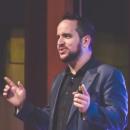Let's Stop Going in Circles

Why does it feel like so much of tech is just reinventing the same ideas every few years?
I have a theory…
We were conditioned to believe education is a means to an end. “Choose the right degree so you can get a good job!” I remember being strongly advised against reading a philosophy degree in favor of reading science or CS. Many of us were advised to avoid “useless” degrees in favor or “valuable” ones. The ones who didn’t are sometimes the butt of jokes.
This repeated framing of knowledge as “useless” or “valuable” often can’t help but stick with us. It unintentionally narrows our future mindset on continuing education. We select books and conference talks on utility, sometimes ignoring our intuition and dulling our natural curiosity.
When we limit learning to what seems useful in the immoderate future, we rob ourselves of broader context and lateral discoveries.
There are so many great lessons and important ideas from the past that remain more relevant than ever but they are being lost. We need to widen our learning bands and build the future upon the lessons of those who came before us rather than wasting time and potential re-learning them.
To quote Richard Hamming:
“In your future anything and everything you know might be useful. but if you believe the problem is in one area you are not apt to use information that is relevant but which occurred [elsewhere].”

